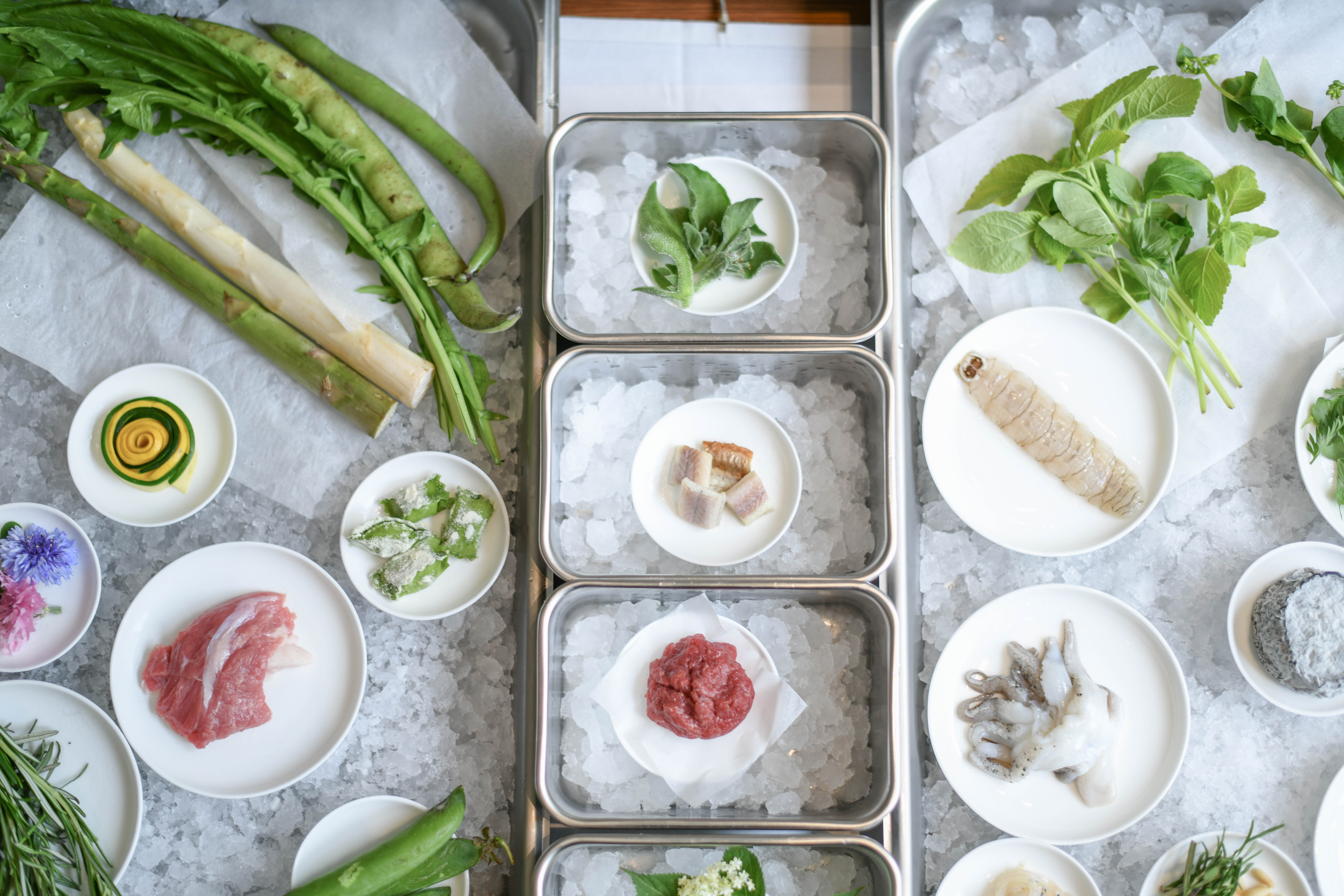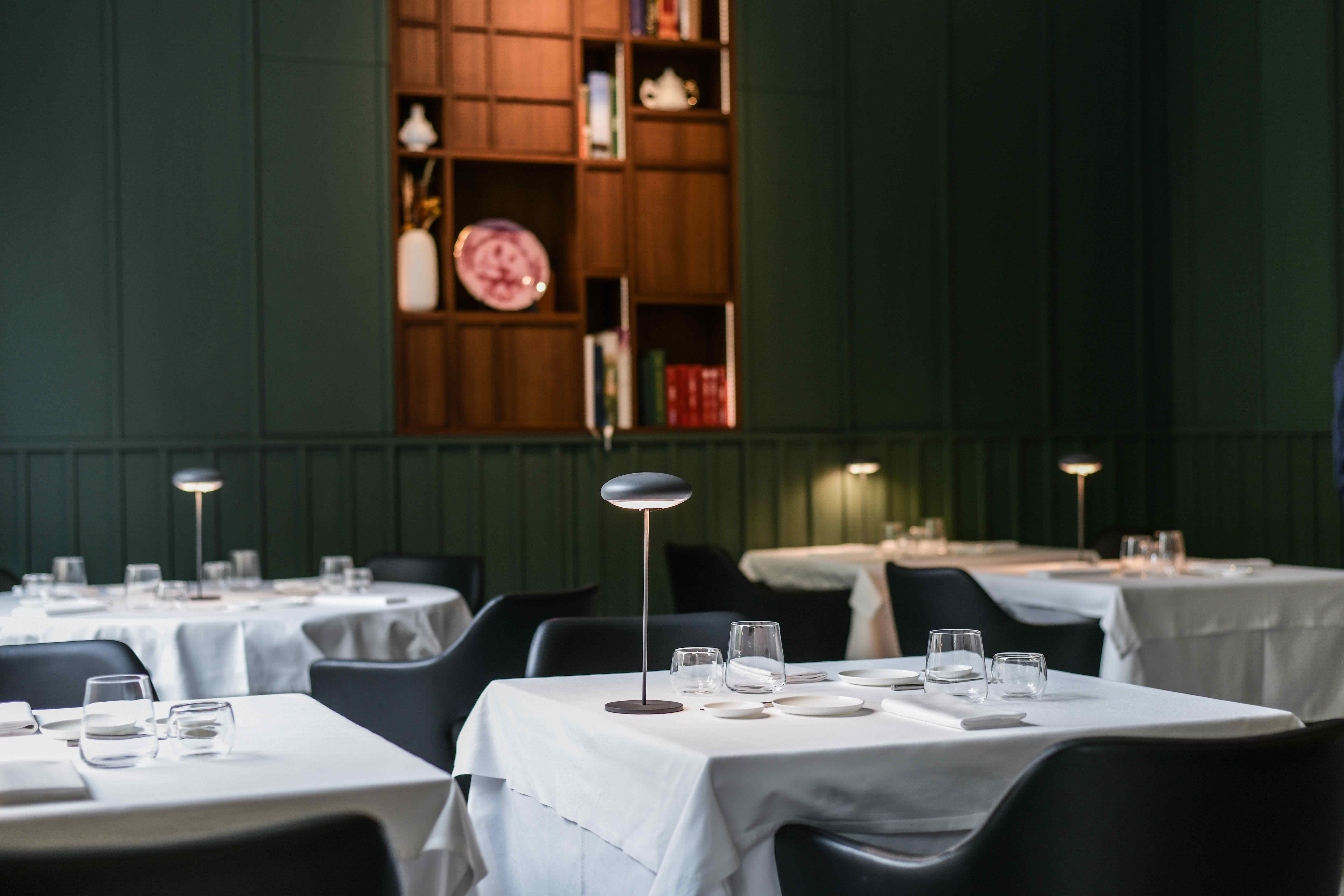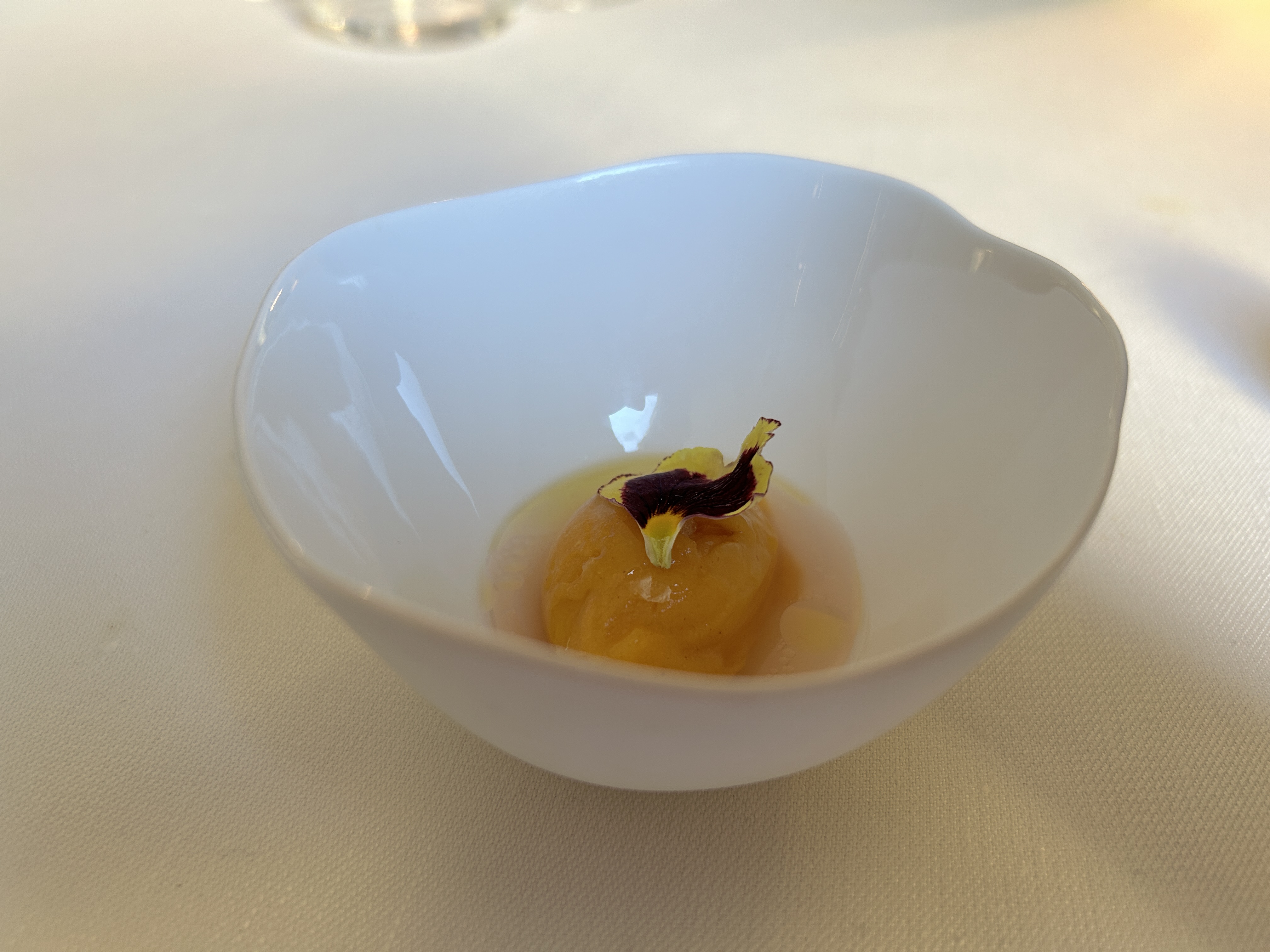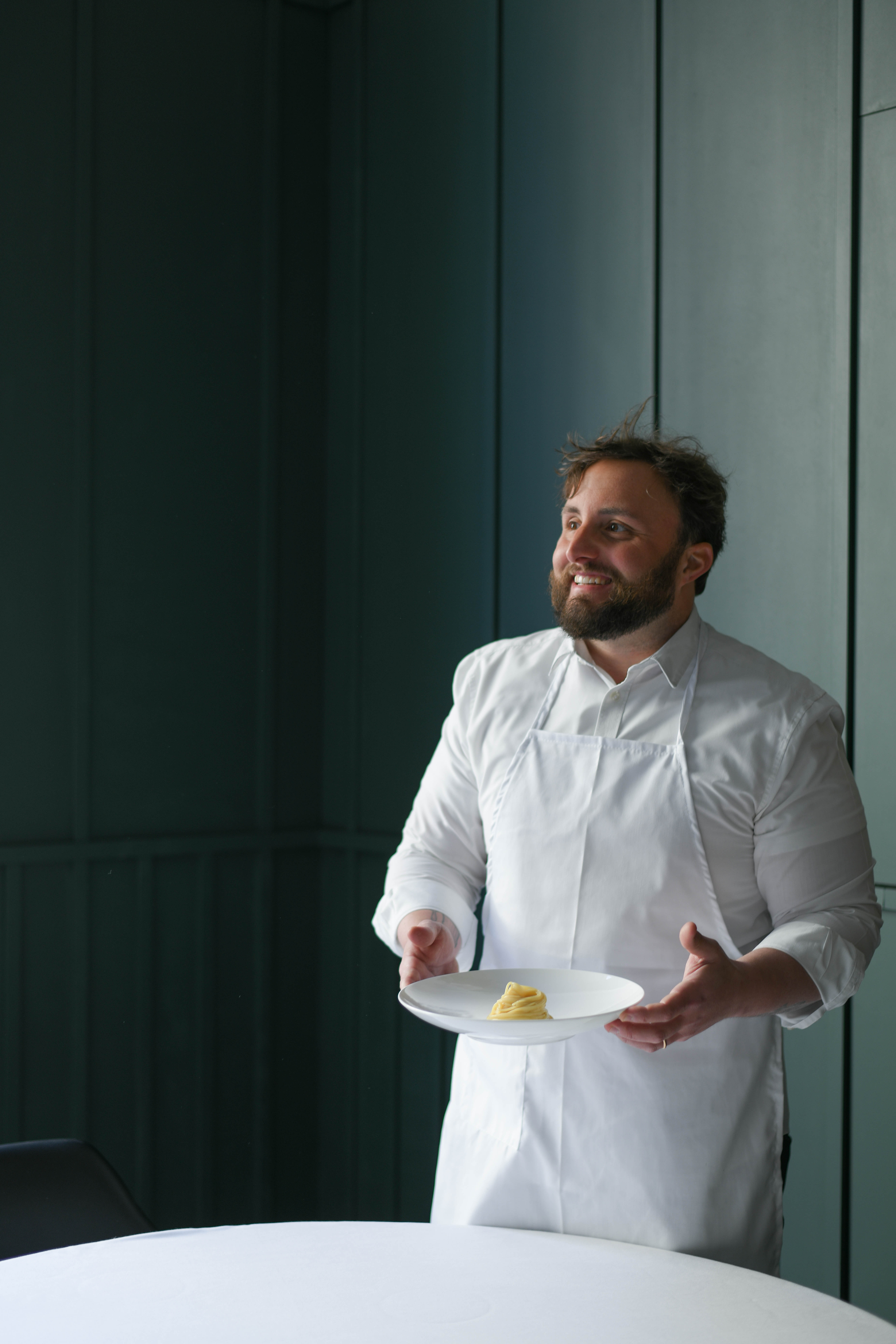Last June the opening night under the Madonnina’s caring shadow; just a few months later, a mention in the Michelin Guide. Luca Natalini doesn’t stop, and is now going for the French double macaron. How? He has told us himself

Milan, the neighborhood is called Porta Romana. Via Lattuana 2 is the address. Autem is the restaurant. It’s one of the most interesting places in the whole city. Or, at least, it’s one of the most interesting places among the recently opened ones. Luca Natalini, a Tuscan-born chef with extensive experience under his belt, has established his headquarters here. He’s opened the doors wide last spring with the typical enthusiasm of those who know very well they are bringing something new to the scene, something they strongly believe in. A menu that basically changes every day, written by hand and renewed daily, where the cooking philosophy is very well defined and fixed in the minds of the chef and kitchen staff alike. A cuisine that follows seasonality more under the “natural” point of view than the fashionable one. Availability is not dictated by the season itself, but rather by what is actually available on a given day. Today you could have a certain raw material that may not be available tomorrow, for any given reason (especially the climate), or may not be suitable to be served to customers.
From a planning point of view operations in the kitchen are improvised, set up daily and adapted according to what is actually available. Meats, of course, but not just that, fish and vegetables as well. A philosophy that allows Autem’s customers to always experience something different and, in some ways, unique. We have gone to Autem and have spoken with chef Luca Natalini who has provided us with more insight into his idea of cooking.
Luca, your cuisine changes constantly, almost every day. What’s behind all of this?
I wanted to convey the beauty of the ingredient. I’ve never thought of my menu as a catalog, but something that best expresses the availability of what we can work with, and out of which we can bring the best. It’s all up to nature and what it makes available to us, and that’s why my menu here at Autem basically changes every single day….
How difficult is it to change every day?
Extremely challenging. This is why you need to be highly inventive, but before that, what you need is a great team. You then need a tremendous daily imprinting. Take meat, for example, we buy the entire animal, and then work it across weeks. The first week we use the whole “fifth quarter” of the animal, as it is the most perishable, then the forequarter, then the hindquarter, and then, gradually, the various cuts. As a premise I’d like to make clear that I don’t need to save the world, it’s just that if each and every chef could change its thinking and commit to that philosophy, then something could actually be done in terms sustainability and ethics. It would also be a good thing for the customer, to whom we can then serve what the planet makes available in that given moment. For those in this profession, that would be a great achievement.

You’ve opened last June, how do you rate Autem’s first few months?
Great, I have to say we have had great feedback from the day we’ve opened until now. We are basically full every evening, and ever since the Michelin’s mention we’ve also increased flows at lunch. So I would say we’ve done very well, also because we’ve opened in May, and the mention came in October. I see this as an extraordinary achievement in just a few months. I hope the inspectors have appreciated this spontaneity of ours, and the sense of purity we attempt to convey here at the restaurant.
You have an iconic dish: “Pasta in Bianco”. How restrictive is it to have a signature dish, and, at the same time, how much of a plus can it be to customers in terms of identifiability?

Being identified and associated with a signature dish of mine that so many customers ask for, can only be a good thing for me.
Being mentioned on the Michelin Guide is something that came about just a few months after the opening. Is getting a Star more of a tangible goal now?
Absolutely. I am stubborn by nature and I always set extremely ambitious goals for myself. And when I am told “you won’t make it,” that’s when I become even more tenacious and I try harder. We did not succeed in the goal of getting the red star and the green star in year one? Very well, we’ll work even harder to get two red stars and the green star. All of this not out of arrogance, but out of ambition. You won’t move forward if you don’t have that. The goals must be very specific, and despite them being very tough, I wake up every morning trying to attain them. What I am interested in, is trying to offer something different in modern dining, and I strive to pursue that goal.
How important is it to have a team and to have colleagues who share the same ambitions?
I am lucky, I have with me a few long-term collaborators who share my way of thinking and philosophy. In addition to that, I can count on professionals I have complete trust in, whom I can rely on, and to whom I can delegate certain tasks without fearing something will be done in the wrong way. The restaurant, therefore, will be able to function even if I am not there, as I have people in the kitchen, and in the dining room, who know exactly what to do. I am very lucky in that way.
Alessandro Creta

